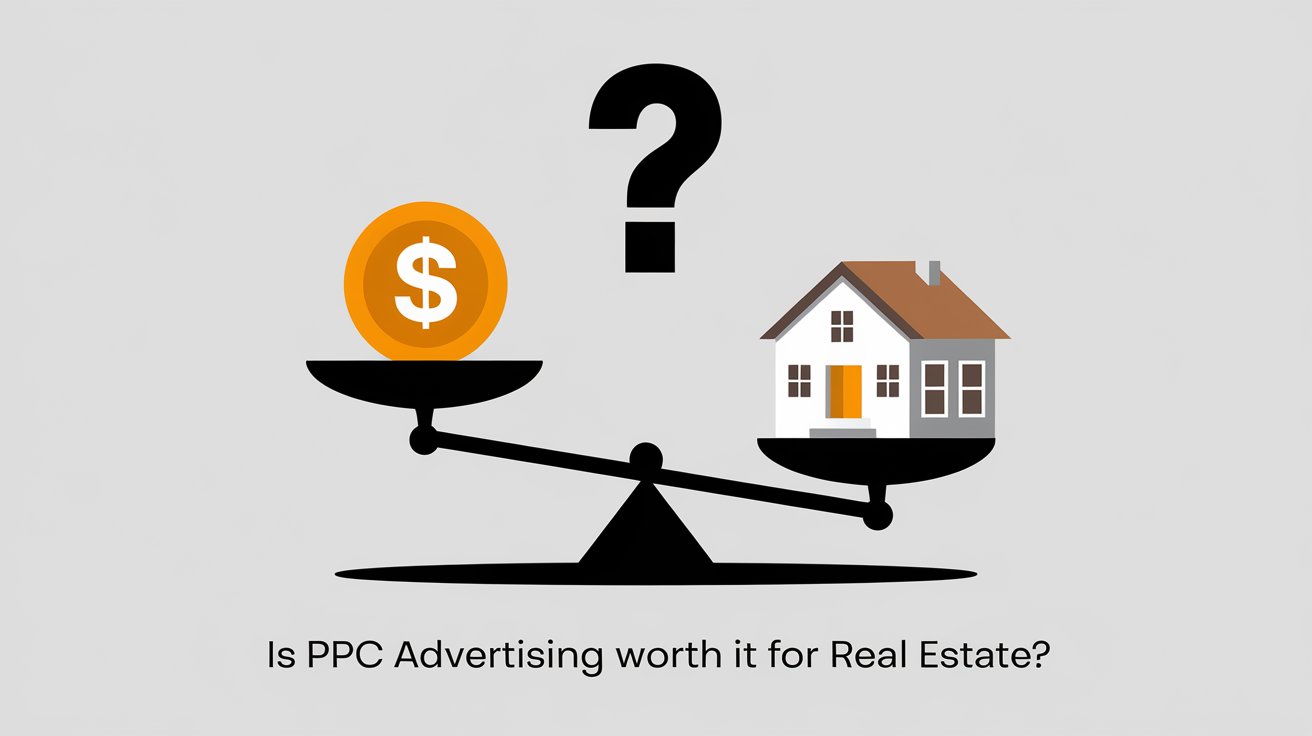
Pay-Per-Click Advertising: Is It Worth It for Real Estate?
In the highly competitive real estate market, standing out from the crowd can be a monumental challenge. With evolving digital marketing strategies, Pay-Per-Click (PPC) advertising has become a critical tool for real estate professionals to capture leads and close deals. But is PPC advertising worth the investment? Let’s dive deep into its benefits, challenges, and strategies to determine if it’s the right fit for your real estate business.
What is Pay-Per-Click Advertising in Real Estate?
PPC advertising is a digital marketing strategy where advertisers pay a fee each time their ad is clicked. These ads often appear on search engine results pages (SERPs) or other platforms like social media and display networks. For real estate professionals, PPC advertising can place listings, property tours, and brand names in front of potential buyers, sellers, or renters precisely when they are searching for relevant information.
The Benefits of PPC Advertising for Real Estate
1. Immediate Visibility and Traffic
One of the most significant advantages of PPC advertising is the ability to achieve instant visibility on search engines like Google. Unlike organic SEO efforts, which can take months to show results, PPC campaigns can generate traffic to your listings or website within hours.
For instance, a real estate agency targeting keywords like “homes for sale in [City]” or “luxury apartments near me” can appear at the top of search results, capturing the attention of highly motivated prospects.
2. Hyper-Targeted Audience Reach
PPC advertising allows for granular targeting options, ensuring your ads reach the right audience. You can target users based on:
- Location: Display ads only to users in specific neighborhoods or cities.
- Keywords: Attract users searching for terms like “new condos for sale.”
- Demographics: Tailor ads based on age, income levels, or family size.
- Behavioral Data: Reach users based on their online activities, such as recent property searches.
This precision reduces wasted ad spend and improves the chances of connecting with qualified leads.
3. High Return on Investment (ROI)
When executed correctly, PPC campaigns offer a high ROI. By focusing on high-conversion keywords and optimizing ad copy, you can attract leads who are ready to act, whether it’s booking a viewing, signing a lease, or making a purchase.
For example, targeting high-intent phrases like “best real estate agents in [City]” or “open houses near me” can lead to direct inquiries, boosting revenue.
4. Measurable and Scalable
PPC platforms like Google Ads provide in-depth analytics, allowing you to measure the effectiveness of your campaigns. You can track metrics like:
- Click-through rates (CTR)
- Cost-per-click (CPC)
- Conversion rates
This data enables real estate businesses to refine strategies and scale successful campaigns for even greater results.
Challenges of PPC Advertising in Real Estate
1. High Competition and Costs
The real estate industry is notorious for its high competition on PPC platforms. Popular keywords such as “houses for sale” or “rental properties” often come with high CPCs, making it essential to allocate budgets strategically.
2. Constant Monitoring Required
PPC campaigns require continuous oversight. Without regular monitoring and optimization, campaigns can quickly become inefficient, draining budgets without delivering results.
3. Complexity of Ad Platforms
Navigating PPC platforms can be daunting for beginners. Understanding features like ad extensions, negative keywords, and bidding strategies is critical for maximizing effectiveness.
Best Practices for Real Estate PPC Advertising
1. Conduct Thorough Keyword Research
Start by identifying high-intent keywords that your target audience is likely to use. Use tools like Google Keyword Planner or SEMrush to uncover terms with high search volume and manageable competition.
Examples of effective real estate keywords:
- “Affordable houses in [City]”
- “Luxury villas for sale”
- “Rent-to-own homes near me”
Incorporate long-tail keywords for better targeting, such as “2-bedroom apartments in downtown [City].”
2. Optimize Landing Pages
A successful PPC campaign doesn’t end with a click. Ensure that your landing pages are optimized to convert visitors into leads. Key elements include:
- Clear and compelling headlines
- High-quality property images
- Easy-to-navigate forms
- Prominent call-to-action buttons (e.g., “Schedule a Viewing”)
3. Leverage Geo-Targeting
Geo-targeting allows you to display ads to users in specific locations, ensuring your budget is spent on local prospects. For example, focus on users in affluent neighborhoods if you’re promoting high-end properties.
4. Use Ad Extensions
Enhance your PPC ads with ad extensions like:
- Location Extensions: Display your office address to build trust.
- Call Extensions: Include a phone number for immediate contact.
- Sitelink Extensions: Link to multiple pages, such as property listings and contact forms.
5. Implement Remarketing Campaigns
Remarketing targets users who have previously visited your website but didn’t convert. By showing ads to these potential leads, you stay top-of-mind and encourage them to revisit your site.
Should You Invest in PPC for Real Estate?
The decision to invest in PPC advertising for real estate depends on your goals, budget, and resources. For agencies or individual agents looking to generate immediate leads and dominate local searches, PPC can be a game-changer. However, to make it worthwhile, you need a well-thought-out strategy, a clear understanding of your audience, and a commitment to continuous optimization.
Conclusion
Pay-Per-Click advertising offers immense potential for real estate businesses to attract leads, drive website traffic, and close deals. Despite its challenges, a well-executed PPC campaign can deliver measurable results and a competitive edge in the market. By focusing on targeted strategies, optimizing your ads, and leveraging analytics, PPC can become a valuable part of your marketing arsenal.
- ATL marketing
- brand activations
- brand experiences
- brand storytelling
- branding
- consumer engagement
- customer engagement
- event marketing
- experiential marketing
- flyer distribution
- interactive experiences
- lerdleap
- live events
- mass marketing
- newspaper ads
- offline marketing
- on-ground activations
- outdoor hoardings
- print advertising
- Traditional Marketing
- TV & radio ads